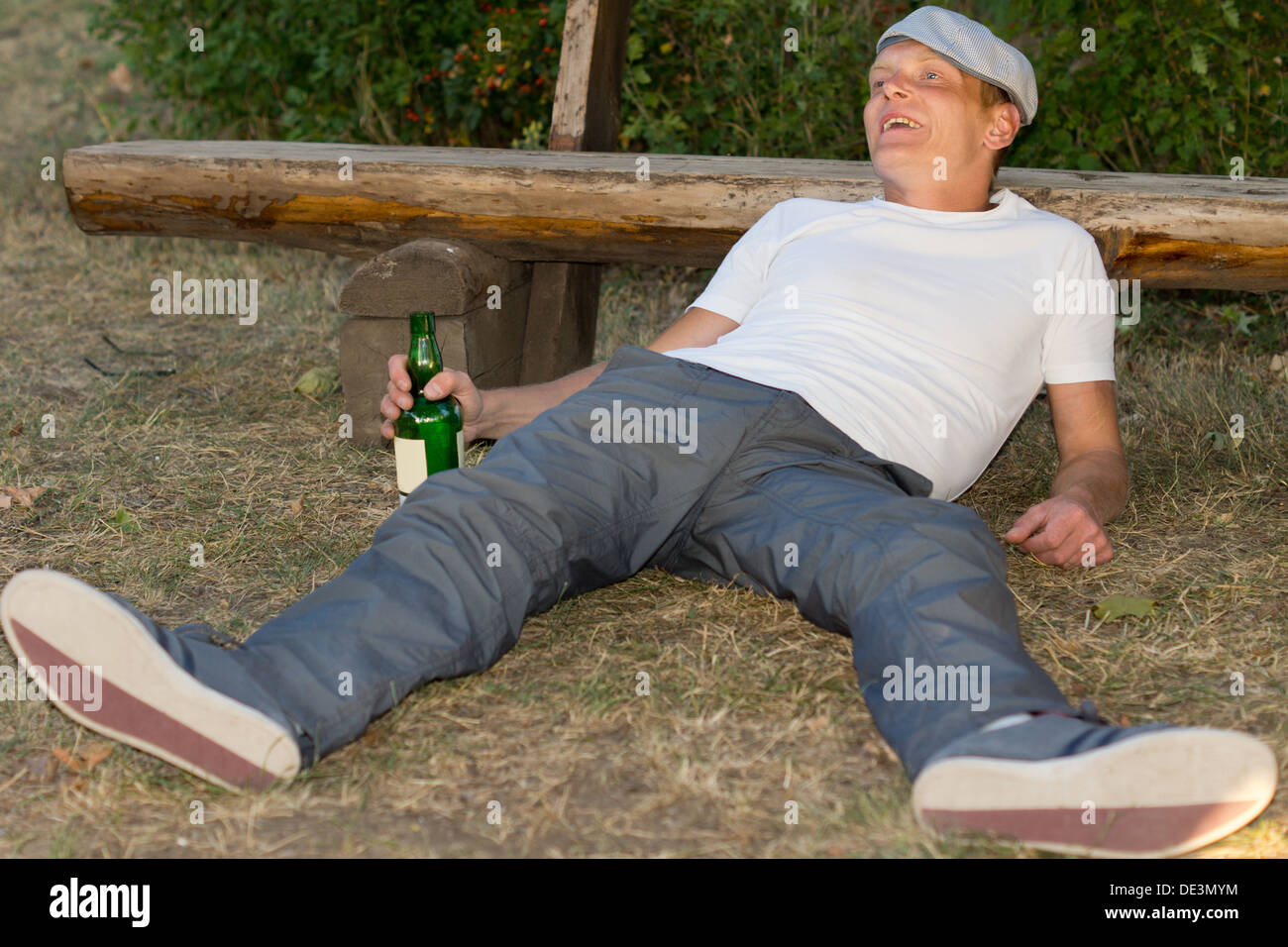Drunk Embarrassing Stories: We’ve All Been There, Right?
Ever woken up with a fuzzy head and a sudden, sinking feeling in your stomach, like you just remembered something… truly cringeworthy? You are not alone, it's almost. Those moments, the ones where your face heats up just thinking about them, are often the result of a night where too much alcohol played a rather big part. It's a common human experience, this stumbling into a temporary state where your usual good sense takes a little vacation, and the next day brings a mix of dread and maybe, just maybe, a tiny bit of laughter.
We all have these tales, or know someone who does, that is that. Perhaps it was a spontaneous dance-off that ended with a tumble, a declaration of undying love to a stranger, or a very, very earnest conversation with a lamp post. These are the classic "drunk embarrassing stories," moments that feel incredibly awkward in the harsh light of day but often become legendary, albeit slightly painful, memories. It’s a pretty universal thing, this human tendency to overdo it sometimes, and then deal with the aftermath.
What exactly does it mean to be "drunk," you know? According to my text, being drunk means being "unable to behave correctly or as usual because of drinking too much alcohol." It's a state where your "physical and mental faculties are impaired by an excess of alcoholic drink." Basically, you've consumed so much alcohol that you become "intoxicated," and your body and mind just don't work like they normally would. This temporary shift, well, it's often the root of those memorable, sometimes mortifying, incidents we recall later.
- 500 Watch
- Divionna Bullock Obituary
- Blonde Fake Lashes
- Shooting In Bushwick Brooklyn
- Cerulean Blue Dress
Table of Contents
- What Happens When You Get Drunk?
- The Anatomy of a Drunk Embarrassing Story
- Why Do These Stories Stick With Us?
- Moving Past the Moment
- How to Avoid New Embarrassing Moments
- Frequently Asked Questions
What Happens When You Get Drunk?
So, what's really going on when someone becomes drunk, you know? My text tells us that "drunk is a condition where a person's mental and physical faculties are impaired due to the consumption of alcohol or intoxicating substances." It's not just about feeling a little tipsy; it's a genuine change in how your body and mind work. This condition often involves "a feeling of euphoria," which, frankly, can be a bit misleading, making you feel more capable or confident than you actually are.
The effects of alcohol are pretty wide-ranging, you see. When you drink too much, your brain function slows down, and this affects everything from your reaction time to your ability to make sensible choices. It's like your internal governor, the part of your brain that usually keeps you in check, just takes a break. This is why things that seem like a good idea at the time, like trying to do a backflip on a table, seem utterly ridiculous the next morning.
My text also points out that "signs of being drunk include loss of coordination or balance, poor judgment, slurred speech or vision." These are the classic giveaways, the things people notice when someone has had too much. It's not just about feeling a bit wobbly; it's a clear physical and mental impairment. And, in a way, these very signs are often what lead to those incredibly awkward, yet memorable, drunk embarrassing stories.
- Keante Harris
- How Much Is Ace Of Spades Bottle
- Damon Wayans Zodiac Sign
- Haley Joel Osment Fat
- Jensen Ackles Meet And Greet 2024
The Anatomy of a Drunk Embarrassing Story
Every drunk embarrassing story, it seems, has a few common ingredients, actually. They usually involve one or more of the classic signs of being under the influence, making the moment uniquely regrettable. Understanding these elements can help us see why these stories are so universally relatable, you know.
Loss of Coordination and Balance
One of the first things to go when you're drunk is your physical control, you know. My text mentions "loss of coordination or balance" as a key sign. This means simple acts, like walking in a straight line or standing still, become surprisingly difficult. It's why so many of these stories involve tripping, falling, or perhaps a clumsy attempt at something athletic that ends in a rather undignified heap. It's almost like your legs suddenly have a mind of their own, and they're not listening to your brain's instructions.
Think about it: trying to climb something, or just navigating a crowded room, becomes a major challenge. The ground seems to shift, and your body just doesn't respond as it should. This lack of physical control, well, it sets the stage for many a comical, yet embarrassing, incident. It's the kind of thing that makes you want to crawl under a rock the next day, but later, perhaps, you can laugh about it, a little.
Poor Judgment and Impulsivity
Perhaps the most common element in these tales is a serious lapse in judgment, so it's true. My text highlights "poor judgment" as a clear sign of being drunk. When your mental faculties are impaired, your ability to think clearly and consider consequences just vanishes. Things that would normally seem like terrible ideas suddenly appear brilliant, or at least harmless.
This is where those bold declarations, the ill-advised texts, or the spontaneous, bizarre decisions come from. You might feel "overcome or dominated by a strong feeling" or "drunk with a strong emotion," as my text puts it, leading you to act on impulses you'd normally suppress. It's like your filter just breaks, and everything you think or want to do, well, it just comes out or gets acted upon without a second thought. This is often the most painful part of the next-day recollection, when you realize just how far off your judgment was.
Slurred Speech and Vision
Communication can become quite a challenge, too, it's almost. My text points out "slurred speech or vision" as other common signs. Trying to articulate complex thoughts, or even simple ones, becomes a muddled mess. Words might get jumbled, or you might repeat yourself endlessly, without even realizing it. This makes trying to explain yourself, or even just hold a regular conversation, pretty difficult.
And then there's the vision, which can get blurry or double, making the world seem a bit more chaotic than it is. Misinterpreting situations or people becomes easy when your eyes aren't sending clear signals to your brain. These sensory impairments often add another layer to the embarrassment, making it harder to navigate social situations gracefully, or even just to see what you're doing wrong.
Overcome by Strong Feelings
My text also mentions being "overcome or dominated by a strong feeling or emotion." Alcohol can really amplify whatever you're feeling, whether it's happiness, sadness, anger, or even a sudden burst of affection. This heightened emotional state, well, it can lead to some truly dramatic and often embarrassing outbursts. You might cry uncontrollably, laugh far too loudly, or become incredibly passionate about a topic that usually holds little interest for you.
These intense emotions, combined with impaired judgment, often result in actions or words that are wildly out of character. It's like your emotional volume knob gets turned up to eleven, and there's no way to turn it down until the alcohol wears off. This can be particularly awkward when those strong feelings are directed at someone, or something, in a way that just isn't appropriate for the situation, you know.
Why Do These Stories Stick With Us?
These drunk embarrassing stories, they have a way of really sticking in our minds, don't they? It's not just the initial flush of shame, either. They become part of our personal lore, often retold at gatherings, sometimes with a grimace, sometimes with a laugh. The reason they endure, in some respects, is because they represent a moment where we truly lost control, and that's a very human, very vulnerable thing.
There's a psychological component to it, actually. When we're sober, our brains are wired for self-preservation and social acceptance. So, remembering a time when we acted completely outside of those norms can be quite jarring. It creates a stark contrast between our usual, controlled selves and the person alcohol turned us into, even temporarily. This contrast is what makes the memory so potent and, well, often quite funny in hindsight, at least for others.
Moreover, these stories often serve as cautionary tales, you know. They remind us of the consequences of excessive drinking, even if those consequences are just a bruised ego or a funny anecdote. They are a kind of social lesson, teaching us, or reminding us, about moderation and responsible behavior without needing a formal lecture. It's a pretty effective way for us to learn, really, through shared, slightly painful, experience.
Moving Past the Moment
So, you've had one of those nights, and the memories are flooding back, making you cringe, you know? The good news is, most people have been there, or they've witnessed someone else's moment. The first step, really, is to acknowledge what happened without dwelling too much on the shame. It's a temporary state, as my text describes "drunk" as "being in a temporary state in which one's physical and mental faculties are impaired." It passed, and you're back to your usual self.
A little bit of self-compassion goes a long way, you know. We all make mistakes, and sometimes those mistakes are amplified by alcohol. If you apologized to anyone directly affected, that's a good start. If not, consider if a brief, sincere apology is needed, but don't overdo it. Often, the other person might not even remember it as vividly as you do, or they might just find it amusing, honestly.
Then, try to find the humor in it, if you can, anyway. Many of these stories, once the initial embarrassment fades, become quite funny. Sharing them, perhaps with trusted friends who also have their own tales, can be quite cathartic. It turns a moment of personal mortification into a shared human experience, making it less heavy. This process of re-framing can help you move on and stop replaying the moment in your head.
How to Avoid New Embarrassing Moments
If you're looking to prevent future drunk embarrassing stories, well, there are some pretty straightforward ways to go about it, actually. The core idea is to manage your alcohol intake so you don't reach that state where your "physical and mental faculties are impaired by an excess of alcohol," as my text describes it. This is about being mindful of how much you're drinking and how it's affecting you.
One simple tip is to pace yourself, you know. Don't drink too quickly. Try to have a glass of water between alcoholic drinks. This helps your body process the alcohol more slowly and keeps you hydrated, which can also help prevent some of the worse effects. Eating before and during drinking is also pretty helpful, as food can slow down the absorption of alcohol into your bloodstream.
Another thing to consider is knowing your limits, which is really important. Everyone reacts to alcohol differently, and what might be fine for one person could lead to an embarrassing situation for another. Pay attention to how you feel after one or two drinks. If you start to feel that "euphoria" mentioned in my text, or notice your speech getting a little slurred, that might be a good time to slow down or stop altogether. Remember, as my text says, if you consume so much alcohol that you become "inebriated," you are drunk. It's about staying in control, so you can make good choices and avoid those regrettable moments. Learn more about responsible drinking on our site, and check out this page for more tips on managing social situations.
It's also worth thinking about who you're with, you know. Being around people you trust, who will look out for you and perhaps gently remind you to slow down, can make a big difference. They can be your safety net, helping you avoid going too far. Ultimately, avoiding those cringe-worthy moments is about making conscious choices about your consumption and being aware of the effects alcohol has on your body and mind. For more detailed information on alcohol's effects, you might find resources from the National Institute on Alcohol Abuse and Alcoholism helpful.
Frequently Asked Questions
What are the common signs that someone is getting drunk?
Well, you know, there are several pretty clear signs. My text points out that "signs of being drunk include loss of coordination or balance, poor judgment, slurred speech or vision." You might also notice a change in their behavior, like becoming overly loud or emotional, or just generally not acting like themselves. They might also have a feeling of euphoria, which can make them seem more outgoing.
How can I avoid getting too drunk at a party?
To avoid getting too drunk, you know, there are a few simple strategies. Try to eat a good meal before you start drinking, and alternate alcoholic drinks with water or non-alcoholic beverages. Pacing yourself is really key; don't drink too fast. Also, try to stick to drinks with a lower alcohol content, and avoid mixing different types of alcohol. It's about being mindful of your limits, honestly.
Is it normal to feel really embarrassed the day after drinking too much?
Yes, absolutely, it's pretty normal to feel embarrassed the day after drinking too much, you know. That feeling of regret or shame is a very common reaction when your "physical and mental faculties are impaired by an excess of alcoholic drink" and you do things you wouldn't normally do. It's a sign that your brain is back to its usual functioning, processing the events with clear judgment. Most people experience this at some point, so you're not alone in that feeling.

Drunk man hi-res stock photography and images - Alamy

Drunk – Telegraph

Drunk man lying on ground hi-res stock photography and images - Alamy